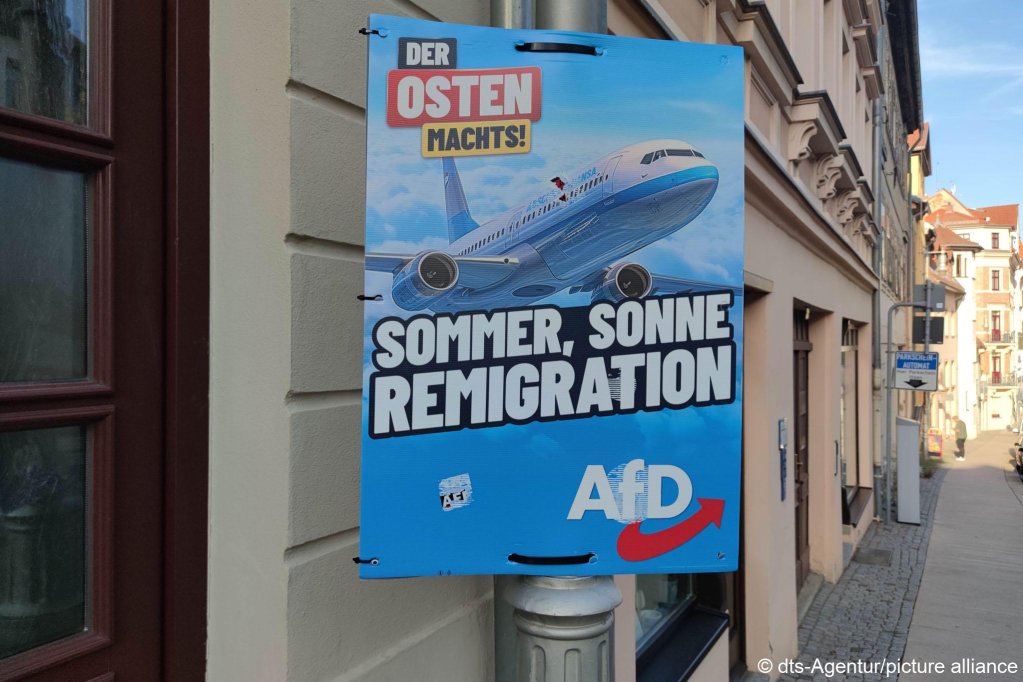The German government is offering money to failed asylum seekers so that they voluntarily leave the country. More than 8,000 already left between the beginning of the year and the end of October, confirmed the government.
Voluntary departures are an important part of Germany’s migration policy. According to figures released last week, at least 8,263 failed asylum seekers took money to leave Germany between the beginning of the year and the end of October.
Information released by the German government on November 23, in response to a freedom of information request from Leif-Erik Holm, a member of the far-right Alternative for Germany party (AfD), confirmed that more than 8,000 rejected asylum seekers were supported via the Reintegration and Emigration Program (REARG/GARP) to return home.
According to the Interior Ministry website, the program was launched in 1979, and built upon ten years later in 1989. The UN Migration Agency (IOM) organizes and supports returns through the REAG/GARP program. In February 2017, the initiative was further reinforced with an extra funding possibility called "StartHilfePlus".
According to the Interior Ministry, "this return program creates an additional financial incentive, making it easier for returnees to regain a foothold in their home country. It is intended for asylum seekers with little chance of being granted asylum who would prefer to go back to their home country. To be eligible for funding under StarthilfePlus, migrants must decide to return voluntarily within the period set for their departure."
There is also a separate program, known as URA, for vulnerable people returning to Kosovo.
Read AlsoGermany: After a returns flight takes off, what happens next?
Funding
The money, states the government, is to pay for flights or bus tickets and medical support when they reach their home countries. The German government has funded the program to the tune of 8.2 million euros this year.

The costs were spread between federal and state governments, as well as the European Union, reported the German press agency dpa. The exact costs borne by the federal and state governments could not be specified, continued dpa, but it is understood that the EU shoulders around 95 percent of the costs of departure.
Voluntary departures are understood to be considerably cheaper than forced deportations, which require police personnel and often special charter flights to fly people to their destination.
'Remigration'
Holm, whose party AfD in Bavaria last week, called for "remigration" to be part of their migration policy ahead of the upcoming German elections, set for February 23 next year, said that he believed Germany "should make use of every opportunity to persuade rejected asylum seekers and other foreigners required to leave the country to depart."
The German MP said that being given money to leave would be significantly cheaper than providing welfare support to people who have been asked to leave but have somehow stayed on in Germany, often through the system of Duldung (a toleration order, often issued to people whose circumstances mean they can’t return home even if their asylum request has been rejected).
Many members of the AfD believe that "remigration" would help solve many of Germany’s financial and social problems by easing the financial burden on town and state councils. The Bavarian section of the AfD discussed proposals of mass returns as part of migration policy in conjunction with an even stricter border policy, to prevent those without papers from even entering the country.

"Protection from conflict and terror should be in line with human rights laws, but no longer be provided on German or European territory," stated the deputy leader of the regional party Rainer Rothfuß, according to dpa. Instead, his party called on the German government and the EU to start providing this protection for people outside the European Union’s borders.
Read AlsoSweden plans to offer increased cash incentives for voluntary returns from 2026
Different states, different rates
The party added that not only rejected migrants found guilty of crimes should be deported but also "groups of people with very little possibility of integrating properly in Germany."
"Germany shouldn’t be a hammock for the rest of the world," Rothfuß reportedly stated.
According to data from the German Federal Office for Migration and Refugees (BAMF), the number of financially supported departures was projected to be around the same levels as last year, 2023.
The number of those who were supported to leave varies between German states. However, last week, German state broadcaster ARD reported in its daily news program that 384 failed asylum seekers from the state of Hessen had been supported to leave by the end of October.
In comparison, 408 people were supported to return to their home countries in the same time frame in 2023, reported ARD’s Tageschau.
Bavaria is the German state that sends the greatest number of people back via this program. According to ARD, 1,803 people were supported to voluntarily leave Germany from that state this year. And just 16 from the state of Brandenburg, which surrounds Berlin. Bavaria has long been ruled by the conservative CSU party and Brandenburg is currently, and historically, ruled by an SPD (social democrat) coalition.
With dpa
